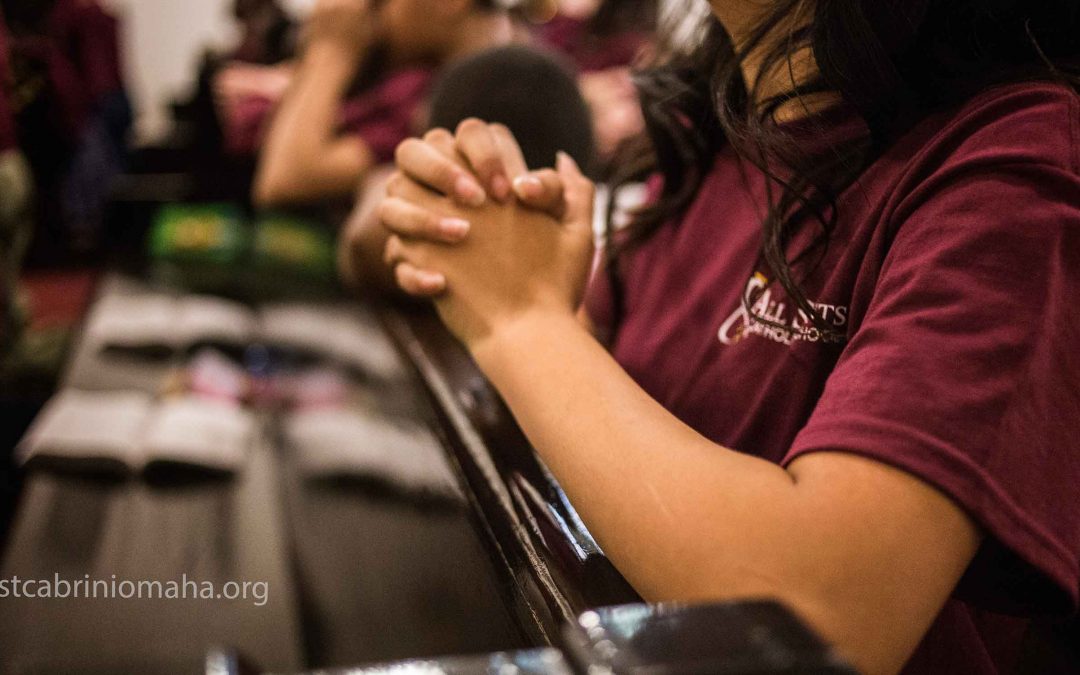Dear Friends,
This week we celebrate the gift of Catholic Schools to our church and to our community. I am a product
of a Catholic School upbringing. When I was student, I did not really know what a gift I was receiving by having
that kind of education. I did not know how much I was being challenged and how hard I was working. It was not
until I attended a public college and found classes to be easy did I realize what a great education I had been given.
Sometimes comedians will make a joke of how disciplined and demanding Catholic teachers can be, but it is just
such a demanding environment that creates well-educated, mature people for our world.
There is a scene in C.S. Lewis’ book, The Lion, the Witch and the Wardrobe, where the Pevensie children
learn about the lion Aslan from Mr. and Mrs. Beaver.
“If there’s anyone who can appear before Aslan without their knees knocking, they’re either braver than most or
just silly.”
“Then he isn’t safe?” said Lucy.
“Safe?” said Mr. Beaver; “don’t you hear what Mrs. Beaver tells you? Who said anything about safe? ‘Course
he isn’t safe. But he’s good. He’s the King, I tell you.”
Aslan, is an image of Jesus. Aslan offers his life to free the people of Narnia. He is not safe, but good. I
think it is the vocation of a Catholic School to be the same. Not safe, but good. Schools are to do the hard work of
inviting students to be all that they are created to be. It is not to simply make them feel comfortable and happy,
but to help them mature and grow and embrace the world with all of its challenges. The goal is wisdom; from the
wisdom will come happiness. Sometimes it is discomfort and challenge that can stimulate growth. Teachers must
honor every student’s humanity, but not be satisfied with allowing students to remain where they are.
Like Aslan with the Pevensie children and Christ with his disciples, the goal of the Catholic School is to
invite students to participate in redemption. To that end, Catholic Schools orient their teaching to the gospel:
creation, fallenness, incarnation, sacrifice, resurrection. They are to teach the truth about God and his world with
excellence, acknowledging that we all fail and need to grow, and trusting the redemptive potential of the
resurrection within.
Aslan, as a representation of Christ, was not safe, but good. He did not shelter the Pevensie children from
their fallenness and its devastation. Instead, he laid it bare. At the same time, he loved them fiercely and honored
them wholly. Like Christ, he was a good teacher. He invited them to repentance. He acknowledged their free will.
He required their holiness.
There are many examples of Jesus doing this in the gospels. One is found in the gospel of Mark, where
we encounter a rich young man who approached Jesus with a question.
“Good Teacher, what must I do to inherit eternal life?” Jesus said to him, “Why do you call me good?
No one is good except God alone. You know the commandments: ‘Do not murder, Do not commit adultery, Do not
steal, Do not bear false witness, Do not defraud, Honor your father and mother.’” And he said to Jesus,
“Teacher, all these I have kept from my youth.” And Jesus, looking at him, loved him, and said to him, “You lack
one thing: go, sell all that you have and give to the poor, and you will have treasure in heaven; and come, follow
me.” Disheartened by the saying, he went away sorrowful, for he had great possessions.
Jesus does not chase after the young man and amend his teaching so that the young man would feel good.
No, Jesus tries to help the young man encounter the truth about himself and the ways of God. Some people may
look at this interaction as a failure, since the young man “went away sorrowful,” but that would be a shallow
reading. Instead, Jesus was the good teacher. He presented the full scope of the gospel in his lesson,
communicated the knowledge and action necessary to repent and pursue holiness, and honored the young man’s
free will, allowing grace to do its mighty work in its own time. This is masterful teaching.
This week, we say thank you to all the masterful teachers who staff our Catholic Schools and challenge
the students to grow in wisdom. We say thanks to all of you who support the schools through your financial
contributions. Thanks, too, to all the parents who have chosen to give a great Catholic education to their children.
In a world that keeps wandering away from God and the truth, we need Catholic Schools more than ever.
Peace,
Fr. Damian



